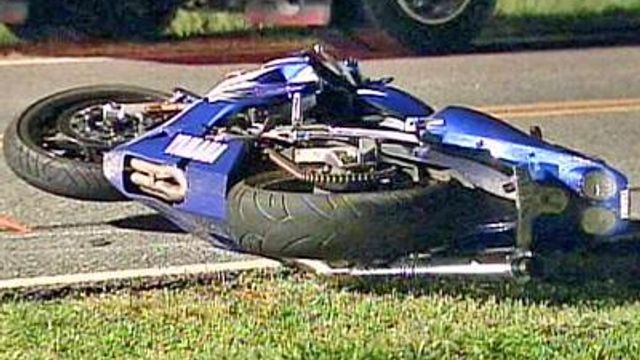AAA: N.C. motorcycle death rate eighth highest in U.S.
Rising gas prices are pushing up motorcycle sales, and those new riders should have to prove their skills in a road test or safety course, AAA Carolina advocates.
Posted — UpdatedThe state's most populous counties, including Wake, Cumberland, Guilford and Mecklenburg, saw more than one of every three fatalities in 2007, AAA Carolinas said.
AAA says that with an increase in sales this year because of rising fuel prices, the number of fatalities will "undoubtedly rise."
Motorcycle sales are up about 10 percent at dealerships owned by Ray Price, partly due to rising gas prices, he said.
"Having a bike that has plenty of power that can ... stay up with traffic ... and also save a lot of gas is probably an important thing," Price said.
With each bike he sells, though, Price said he tried to send a message: "We've always stressed a lot of safety."
Statistics confirm several crash studies that found higher crash and fatality rates among untrained motorcyclists, said John Stokes, state traffic records coordinator with the North Carolina Governors Safety Highway Program.
Nationally, nearly half all motorcyclists killed are riders aged 40 or older, who have to compensate for decreasing coordination skills and reflexes, AAA says.
“In North Carolina over the last three years, improper riding skills were a factor in 51 percent of the crash fatalities involving motorcycles,” Stokes said.
Part of the problem, AAA says, is that state law does not require a road test or safety course to obtain a learners' permit to drive a motorcycle. A motorcyclist can indefinitely renew the 18-month learners' permit by passing vision, highway sign and motorcycle knowledge tests.
Peter Kaufman, 71, said he became convinced of the importance of safety training after he was hurt in motorcycle wreck. "I ran over some anti-freeze in the road and didn't realize it until the bike was laid down," he said.
Kaufman said he's taken up teaching a safety class and makes sure to always wear protective gear.
"I still love riding. ... There's nothing you can do without risk. The best thing you can do is manage the risk in everything you're doing," Kaufman said.
Those seeking a motorcycle endorsement on their drivers' license must pass an on-road skills test. Motorcyclists are encouraged but not required to take a safety course.
Sixteen states currently mandate motorcycle training programs, according to AAA.
A quarter of motorcyclists involved in a fatal crash nationally did not have a valid license, according to a 2007 study by the Governors Highway Safety Association.
Operators of other vehicles contributed to 40 percent of all fatal motorcycle crashes, according to the Motorcycle Industry Council.
• Credits
Copyright 2024 by Capitol Broadcasting Company. All rights reserved. This material may not be published, broadcast, rewritten or redistributed.





